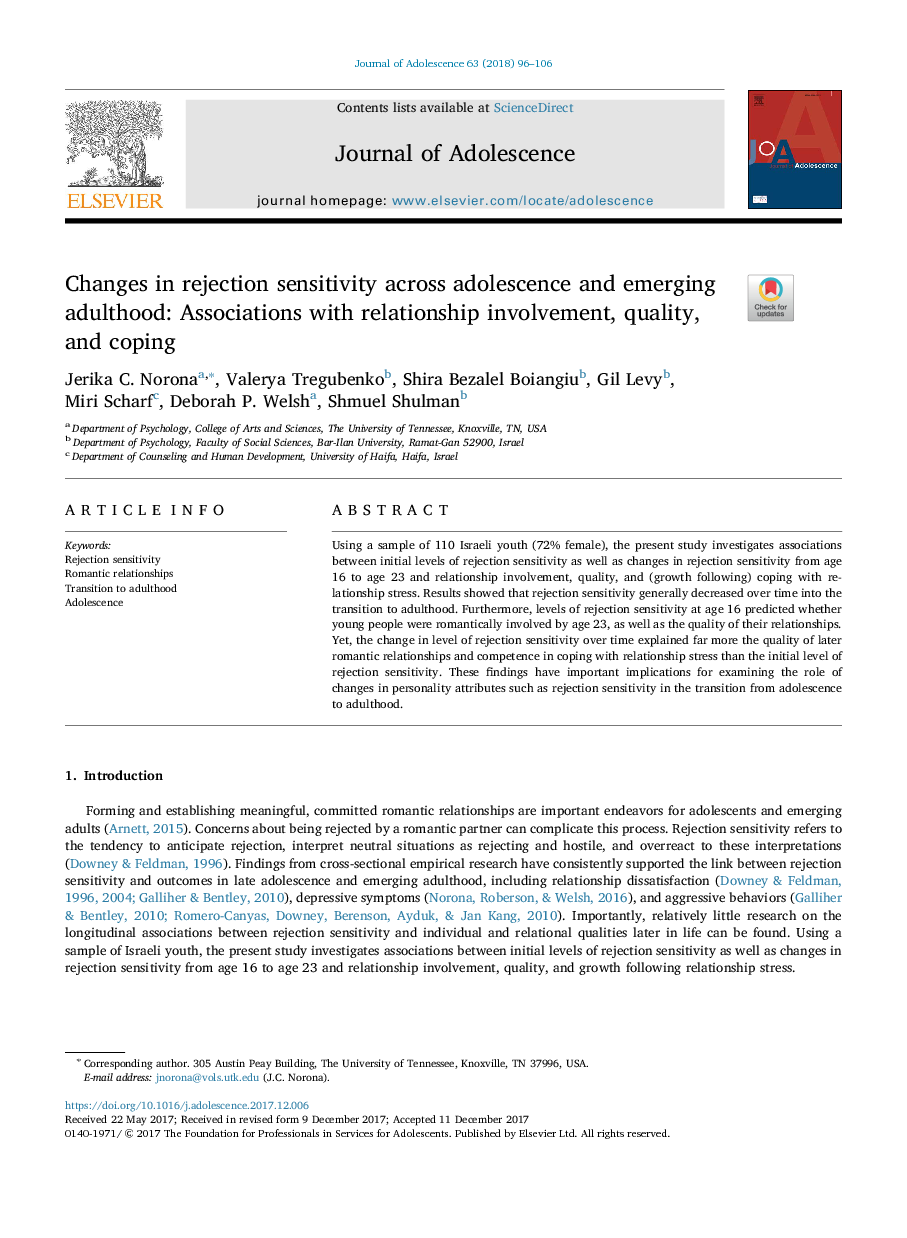ترجمه فارسی عنوان مقاله
تغییرات حساسیت ردگیری در دوران نوجوانی و بزرگسالان در حال ظهور: انجمن هایی با درگیری، کیفیت و مقابله با رابطه
عنوان انگلیسی
Changes in rejection sensitivity across adolescence and emerging adulthood: Associations with relationship involvement, quality, and coping
| کد مقاله | سال انتشار | تعداد صفحات مقاله انگلیسی |
|---|---|---|
| 131891 | 2018 | 11 صفحه PDF |
منبع

Publisher : Elsevier - Science Direct (الزویر - ساینس دایرکت)
Journal : Journal of Adolescence, Volume 63, February 2018, Pages 96-106
ترجمه کلمات کلیدی
حساسیت رد، روابط رمانتیک، گذار به بزرگسالی، بلوغ،
کلمات کلیدی انگلیسی
Rejection sensitivity; Romantic relationships; Transition to adulthood; Adolescence;
ترجمه چکیده
با استفاده از نمونه ای از 110 کودک جوان اسرائیلی (72٪ زن)، پژوهش حاضر ارتباط بین سطح حساسیت رد گیری و همچنین تغییرات حساسیت ردگیری از سن 16 تا 23 سالگی و ارتباط رابطه، کیفیت و (رشد بعد) مقابله با استرس ارتباطی نتایج نشان داد که حساسیت ردگیری به طور کلی در طول زمان به انتقال به بزرگسالی کاهش می یابد. علاوه بر این، سطح حساسیت ردگیری در سن 16 سالگی، پیش بینی کرد که آیا جوانان به سن 23 سالگی رمانتیک بودند و همچنین کیفیت روابط آنها. با این حال، تغییر در سطح حساسیت ردگیری در طول زمان، کیفیت روابط عاشقانه بعد و توانایی در مقابله با استرس ارتباطات نسبت به سطح ابتدایی حساسیت رد را بیشتر توضیح داد. این یافته ها برای بررسی نقش تغییرات در ویژگی های شخصیتی مانند حساسیت ردگیری در گذر از نوجوانی تا بزرگسالی، مهم است.

